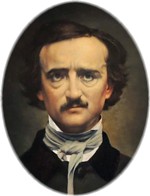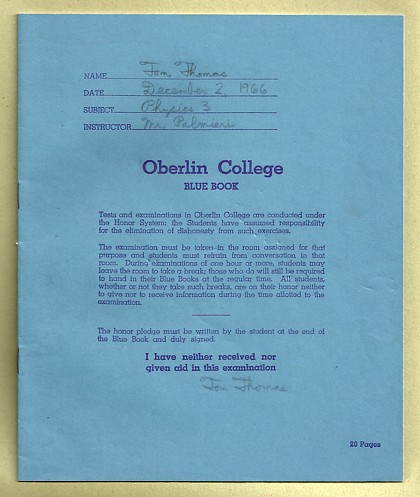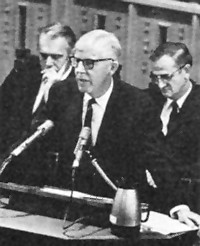MAY
31, 2008 ![]() JUNIOR'S
TANTRUMS
JUNIOR'S
TANTRUMS
Different parts of our brain have different tasks. At the bottom there's the "reptilian brain." Inherited from our distant ancestors, it controls basic functions such as breathing and defending territory. Other parts of the brain have evolved more recently to control higher functions such as speaking and solving crossword puzzles.
 Somewhere
in my reptilian brain there's a lobe I call Junior, after Red
Skelton's juvenile character, the Mean Widdle Kid. Junior still
hasn't learned how to be patient. He sometimes throws tantrums,
and I have to scold him. The function that Junior controls is
the bathroom function.
Somewhere
in my reptilian brain there's a lobe I call Junior, after Red
Skelton's juvenile character, the Mean Widdle Kid. Junior still
hasn't learned how to be patient. He sometimes throws tantrums,
and I have to scold him. The function that Junior controls is
the bathroom function.
There's no physical difficulty. I have no prostate problems that I know of, and apparently I have a fairly large bladder. As a teenager, I once restrained myself for more than 27 hours (not recommended) because a smelly outhouse was the only facility available.
I can easily work a seven-hour baseball doubleheader without taking a restroom break. In fact, the first time I feel any urge to relieve myself is afterwards, when I've located my car in the ballpark parking garage. That's when Junior wakes up. "Gotta go!" he yelps. "Wanna go right now!" I shush him and promise that we'll take care of business as soon as we get home. He won't shut up until I've fastened my seat belt and put the car in gear, but then the motion of the car seems to lull the widdle kid to sleep. Or maybe it's the familiar task of driving. Anyway, there are no further urges until I've parked at my apartment. "We're home!" he cries. "Gotta go right now!" Just wait one more minute, I plead, quickly unlocking the door and hurrying straight to the toilet.
Junior feels at home in my apartment, and he's less inhibited. During the day, he can pipe up suddenly and insistently, because he knows that the bathroom is only a few steps away. (This never happens when we're away from home.) In the middle of the night, I usually wake up around 3:00 and indulge him. But I realize it's all in my head.
Yesterday
morning, I had just started checking my blood pressure when Junior
decided he wanted to go. "This will only take a
moment," I told him. But he didn't want to be put
off. He never does. He started throwing a fit, screaming,
kicking his feet, turning red in the face. I clenched my
crossed legs. The BP reading appeared on the monitor: 153
over 91. I scribbled it down and hurried off to quiet
Junior. Then I came back and took another reading, just a
couple of minutes after the first one. This time the numbers
were much more healthy: 123 over 75. My pulse rate was
now only 60; it had been 72 before. Numerical proof of what
that mean widdle kid can do to me!
|
MAY
28, 2018 So you're driving in the South Hills of Pittsburgh. You're coasting west on Coast Avenue through the scenic Beechview neighborhood, looking for an address on Napoleon Street. Your GPS tells you to turn right on Canton Avenue, followed by two more rights. Ah, but the navigation software hasn't told you the whole truth. It has failed to warn you that the first hundred feet of Canton is the steepest street in the entire continental United States!
The
grade is a mere 37%. Good luck. |
|


MAY
25, 2018 ![]() GATHER
YE WHILE YE MAY
GATHER
YE WHILE YE MAY
People
who produce their own food are described either as
“farmers” or as “hunter/gatherers.”
|
We didn't hunt, either. The Thomases were not murderers. We did not go out searching for innocent creatures to kill. (To “hunt” down out all these photos, I had to go online.) |
|
||
|
But I didn't enjoy any of the fishing experience — not impaling a worm, nor drowning it, nor retrieving my wriggly piscine prey. |
|
||
|
Mother wasn't very impressed, however. Dandelions are considered a weed. I had to hunt down any dandelion plants I could find in the lawn, stabbing them to death with a giant plastic syringe filled with the herbicide 2,4-D. |
|
|
|
When I was seven, we moved to a farmhouse. People had lived there before us, of course, and they must have had a garden. We discovered asparagus poking up from the ground, unbidden. Before the plants bloomed and went to seed, we gathered the young spears and took them to the kitchen.
|
||
|
|
|
MAY
22, 2018 ![]() CNNWOBC
CNNWOBC
Let's turn back the calendar more than half a century to the fall of 1967, when I was the Sports Director of Oberlin College's campus radio station.
Every weeknight at 11:00 PM, WOBC presented a half-hour news and commentary program that we called Oberlin Digest. My friends and I interviewed Yeoman coaches and athletes on Fridays. Earlier in the week, Digest was sometimes hosted by our Program Director, senior Ted Gest.
According to WOBC's weekly Program Guides, on at least a couple of occasions Ted chaired a two-part discussion with three freshmen. The panel reviewed an Education Conference on Monday and Tuesday, October 30 and 31. The same four experts returned for a Vietnam "think-in" on December 4 and 5.
|
I can't resist tinting their yearbook photos to imagine that if WOBC had been a cable television news channel back then, our viewers would have tuned in to see a four-way split screen plus a crawl. This is how it's done nowadays, isn't it? Left to right: Ted Gest, Chris la Fleur, Oliver Cass, and Steve Kelly. |
|
||
|
But we don't have to use Photoshop to imagine such a panel. I have a collection of actual 1967 photographs from our radio studios, such as this one. That's me in the striped shirt next to Ted. The photos, including an appearance by a dollar-bill kazoo, are in this month's 100 Moons article. |
|
||
|
|
|||
|
|
MAY
19, 2018 There's a term for everything, and the word for today is hypogeusia. It describes a decreased ability to taste. I think I have a mild form of it.
When
I eat cottage cheese, from my alphabetical array of flavor powders I
usually select Old Bay Seasoning. Many folks prefer dried red
pepper, but for some reason I've never been able to taste
paprika. Nor have I learned to taste a difference between olive
oil and corn oil. |
|
|
I used to love meat from sheep and lambs: roast lamb, gyros, even good ol’ barbecued mutton like this from the Moonlite Bar-B-Q Inn in Owensboro, Kentucky. But sometime in my late 50s, I found I no longer could detect the carbonyls and branched-chain fatty acids that give lamb its distinctive aroma and flavor. Now it seems as ordinary as overcooked beef. However, everything else tastes fine. |
|
This situation has solved one personal problem. I no longer have to worry about how to order a certain lamb-on-pita sandwich. I've always been hesitant, unsure how to pronounce “gyro.” I knew it wasn't supposed to be like “gyroscope.” Now I hear the announcer on Arby's commercials saying something like “year-oh.” That can't be right, can it?
Medications to lower my cholesterol and blood pressure might have something to do with my hypogeusia, but probably it's simply aging. The Internet tells us, “A healthy tongue sloughs off and regrows taste buds constantly. Once we hit middle age, the buds continue to die and be shed, but a smaller number regenerate as the years go on. And with fewer taste buds in our mouths, flavors begin to taste blander. Nearly half of older folks have some level of impaired taste or smell. The weird thing is that the particular aromas that we lose sensitivity to vary wildly from person to person.”
My particular loss of taste must be payback for tormenting my neighbors when I was young — the sheep and lambs who lived next door.
|
MAY
16, 2018 |
|
Today is WENDsd’y, so let me intORduce an uncomfTOR’ble subject. Sometimes we scramble our letters before we speak.
|
|
|
Also, you may have heard that England's Prince Harry is getting married to a melted American on Saturday. Did you know that Harry was named after my grandfather, Harry Gladstone Buckingham? I feel royal!
|
The four-games-out-of-seven NBA playoff series between the Celtics and the Cavaliers is tied at two games apiece. Game 5 will be tonight, and either the Celts or the Cavs could win. However, a radio commentator today referred to league history, and he said that the outcome of Game 5 is critical. For some reason, whoever wins Game 5 goes on to win the series 85% of the time!
Are incomprehensible forces at work? Is there something magic about Game 5 that makes it the key to victory?
No, that 85% figure seems perfectly reasonable to me. Let's look at the probabilities going into Game 5. With four games played so far, the series standings could be either 4-0, 3-1, or 2-2.
Scenario A: Your team is ahead 4-0 or behind 0-4. There's no need to play Game 5, because one team already has four wins and the series is over. So Scenario A is irrelevant.
Scenario B1: Your team is ahead 3-1 and then wins Game 5. Now you're ahead 4-1, the series is over, and you have a 100% chance of winning it.
Scenario B2: Your team is behind 1-3 but then wins Game 5 in an upset. Now you're behind 2-3. To win the series, you still have to win both Game 6 and Game 7. All else being equal, the chance of winning each game is 50%. The chance of winning both is 50% x 50%, or 25%. You have only a 25% chance of winning the series.
Scenario C: The series is tied 2-2. The team that wins Game 5 will be ahead 3-2. That means they have a 75% chance of taking the series. (Why? From Scenario B2, we know that the other team, behind 2-3, has only a 25% chance.)
Suppose a dozen different series reach Game 5. In roughly six of them, one team will be leading 3-1 (Scenario B1 or B2), while the other six will be tied (Scenario C). If Scenarios B1 and B2 are equally likely (3 times each), we can average the probabilities to (3B1 x 100% + 3B2 x 25% + 6C x 75%) / 12 = 69%.
But Scenarios B1 and B2 are not equally likely. When a series stands at 3-1, which team is more likely to win Game 5? The superior team, the one that already has three wins, correct? So the series-clinching Scenario B1 occurs more often than the delaying-the-inevitable Scenario B2. If it occurs five times out of six, the averages are now (5B1 x 100% + 1B2 x 25% + 6C x 75%) / 12 = 81%.
Now consider other subtle effects such as morale and momentum, plus the fact that the winner of Game 5 gets to return to that same favorable arena for the decisive Game 7, and we can easily justify the 85% result that was obtained experimentally.
|
MAY
13, 2018 |
|
|
|
All these signs are at a nearby strip mall, the Hillcrest Shopping Center. The representative of the lighted elliptical sign company must have had a productive visit.
|
The cost of sending an ounce of first-class mail went up by a penny today, but for the first time I didn't have to worry about coping with the increase. The Post Office finally figured out an efficient way to sell stamps, 160 years after the first stamps were issued in 1847.
“Until then,” wrote John Ross in Smithsonian ten years ago, “the federal postal system had operated without stamps. Mail usually traveled postage due. To claim a letter, the addressee, rather than the addressor, paid its postage. A prepaid letter might have suggested an insult, that the recipient was too poor to pay for it himself. But ‘paying for a letter was like receiving a collect call from China.’ In the 1830s one disgruntled individual harassed an enemy by sending him letters stuffed with blank pages. Many people who received mail simply refused to pay, rejecting the letter outright.”
|
2024 update from newspapers.com:
Individuals
visited the post office to inquire if they had mail waiting for
them. If so, the recipient paid the postage and received their
letter. Many individuals in rural communities went to town once
a week or even once a Some enterprising folks today make money by collecting used bottles and such and turning them in for the deposit. In the olden days, some folks apparently assumed the role of unofficial mail carriers. They went to the post office and paid the postage for several letters. Then they carried the mail to its various addressees and were reimbursed — presumably with an additional tip. One writer suggested that fake letters could replace the first half of this process.
|
||||
|
Ross continued, “Stamps promised to flip this tradition on its head by shifting responsibility for paying postage from the recipient to the letter writer.” However, a problem arose when inflation required an increase in postal rates. Your five-cent stamps were no longer sufficient. You had to add a one-cent stamp, as on this 1968 letter, and buy six-cent stamps for future mailings. |
|
Last year, the Post Office at last introduced the Forever Stamp. You buy it at whatever rate is current, and it can be used on first-class mail at any time, regardless of any price increases in the interim. The fee that long ago was collected when the mail was delivered, and later was collected when the mail was sent, is now collected when the stamp is purchased. It seems like a good idea to me.
I had another idea around 1970, inspired by the IBM computer cards of that era with which we fed Fortran programs and data into a mainframe computer. The cards all had one corner shaved off so that they could be mechanically sorted to face the same direction.


My idea was that the Post Office should give a discount to standard-sized envelopes if they were shaped like trapezoids so they could all be mechanically sorted to face the same direction. But optical recognition techniques have made these non-rectangular envelopes unnecessary, I guess.
MAY
10, 2018 ![]() HOT
AIR, SIGNIFYING NOTHING
HOT
AIR, SIGNIFYING NOTHING
Two years ago on one of his “vanity cards,” TV producer Chuck Lorre recalled “the high school and college essay exams where I purposely tried to hide my lack of preparation behind a voluminous cascade of impressive-sounding words. My theory was that a thick stack of single-spaced purple prose would be so off-putting to the teacher, he or she would slap a ‘C’ on the paper in order to avoid wading through a lot of cursive bull$#!+.”
As a student, I never tried to fill a page with meaningless verbiage. But here's a parody of such attempts. Written in cursive longhand for an illustration in my 1969 college yearbook, the Hi-O-Hi, it purports to be the last page from one of the standardized “Bluebooks” in which we wrote our examination answers.
|
|
and
so ultimately the value of answering the question, "Describe
the general structure of the United States government with specific
emphasis on the past," can be, of course, seen, as it were, in
one of two lights: i.e., good and bad. But any answer to
this question begs the greater question of point of view. The
terminological difficulties alone impose an insuperable barrier.
What is it the professor wishes? What would he have? Is
truth so dear or knowledge so sweet as to be purchased at the price
of chains and slavery? Who is to answer this question? An
historian with a probable built-in bias? A grad student writing
his dissertation? Certainly not I have neither given nor received. |
|
|
|
|
– and why, really, does President Carr continue to produce and encourage rational discourse? – I know not, Parapraxis. You know that all of us have earnestly sought the answer now for five long years. Have you any fresher insight into this most familiar problem of our existence? |
– Indeed, Hamancha, I believe that I have found the answer at last. Yesterday, while seducing the secretary of the Physics Department, I chanced to note, on the lowest, darkest shelf in the stacks, a monograph dated 1964, titled ‘On the Stability of the Oberlin System.’ Thinking this an odd title for Physics, I began leafing through it while she took up the burden of the work — and discovered that precisely five years ago, it was calculated that were it not for the continuous uprush of hot air over the campus with the resulting updraft and suction, the entire institution would be sucked into the Great Ohio Mud Sea within three months. We must indeed congratulate the President, for by great personal self-sacrifice and effort he has assured, for five long years, that the hot air flow of Oberlin has never once faltered.
|
MAY
8, 2018 |
|
It's my impression that in the old days, TV cameramen framed shots of individual performers much more tightly. Now today, with almost seven times as many pixels to work with, the standard framing has been loosened from “medium closeup” to “waist shot.”

(But don't count the pixels in my simulation. This Internet image is only 371 lines high.)
MAY
6, 2018 ![]() ATTENTION
MUST BE PAID
ATTENTION
MUST BE PAID
According to The Tweet of God, “paying attention to Kanye West is a choice.”
I don't normally make that choice, but in this case we do need to examine what the rapper actually told TMZ Live. Contrary to the ensuing outrage, he did not claim that slavery was a choice. By definition, involuntary servitude is not voluntary. “To make myself clear,” he tweeted later, “of course I know that slaves did not get shackled and put on a boat by free will.”
What he did mean to say, I think, is that many present-day blacks are choosing to remain slaves to their obsession over being in chains long ago. “You hear about slavery for 400 years. For 400 years?! That sounds like a choice. You was there, and it is all, y'all? It's like we're mentally in prison. My point is, for us to have stayed in that position even though the numbers were on our side means that we were mentally enslaved.”
MAY
4, 2018 ![]() THE
WAR ON EDUCATION
THE
WAR ON EDUCATION
A couple of months ago, I expressed some of the following thoughts. But now it's time for a guest column, by Robert S. Elisberg. It's a highly-condensed and formatted version of an essay he posted last December. Most of it, after the first four paragraphs, actually comes from an article he wrote during the previous administration.
The Republican Party has made a concerted effort to convince the public not to trust knowledge, so you can make up anything you want and convince people it's The Truth. Voters are taught not to think or question.
We have the Trump administration trying to push the concept of “alternative facts,” and cries of “fake news” against honest, factual reporting. We have a president who lies so much that running totals are now kept by reporters. There is a base which — no matter how demonstrably, unarguably wrong something the president says is — seemingly will literally follow him anywhere, off the edge of the earth if necessary.
My most-common response on social media in a “debate” is “Willful ignorance is not a virtue.”
I wrote an article on the Huffington Post for December 1, 2011. Yes, that's when it was written. Not last night.
Conservatives only have themselves to blame for the rules they wrote and have been playing by for over half a century.
You can't trust really-smart people!
Education gets in the way of common sense!
Science is the enemy of religious faith!
College is for over-privileged elitists!
Facts matter less than What You Believe!
|
|
|
When Adlai Stevenson ran again Dwight Eisenhower for president in 1952, the big criticism that Republicans launched against Stevenson was that he was “an egghead.” Meaning, he was much too smart to be trusted. When John Kennedy was elected president in 1960, Republicans disparaged him for his “Harvard Mafia.” Meaning, there were all these people so smart they were scary dangerous. |
|
After Richard Nixon was elected president in 1968, he put college students high on his Enemies List. When the second George Bush was president, he trumpeted his “No Child Left Behind” program — and then under-funded it, leaving those very schoolchildren far behind. In 1996, the Republican Party platform stood for abolishing the Department of Education. |
|
|
A relentless pounding against the importance of education. To reject facts. To ignore history. To dismiss science. To mistrust the news media. It is no wonder that a Bush White House official ridiculed those who live in “the reality-based community.”
When information is diminished, it demands having faith that others will lead you. It is no accident that conservative politicians court the religious right as their party's base. Religion is centered on belief, on unquestioning faith. And that is the path to unquestioning faith in everything.
No doubt, some will be up in arms by how supposedly-elitist this all is. But wanting everyone to be as educated as possible is the exact opposite of elitism.
If you don't want to be angered when your candidates are perceived as less than brilliant, then promote brilliance. Don't claim that opinion supplants fact.
Will and Ariel Durant wrote The Lessons of History in 1968. “Democracy is the most difficult of all forms of government, since it requires the widest spread of intelligence. Ignorance lends itself to manipulation. ‘You can't fool all the people all the time,’ but you can fool enough of them to rule a large country.”
MAY
1, 2018 ![]() PHI
BETA KAPPA
PHI
BETA KAPPA
|
In May of 1968, I was honored for being a good boy and earning good grades. I stayed up very late one Saturday night to monitor national political maneuvers, although it was all fake news. I got into a discussion of ESP, measured the speed of dropping latex, and stumbled through a Russian final. Click here for my latest article in the 14-month series recalling my life 50 years ago. You'll see photos of a Republican parade featuring not only elephants but also a rusty station wagon from Tricky Dick Used Cars. |
 MAY
2018
MAY
2018










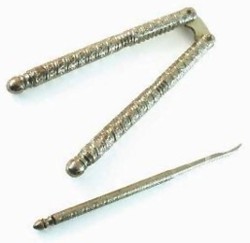
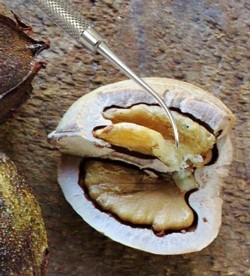

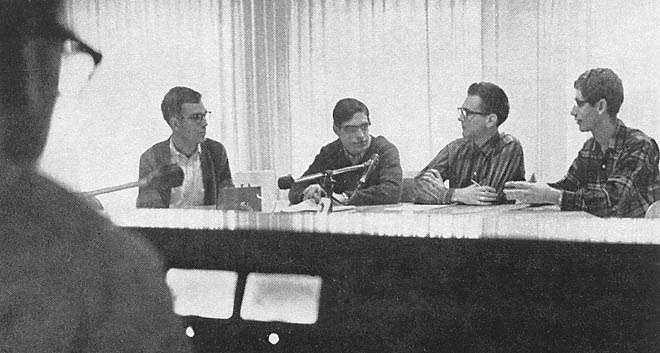


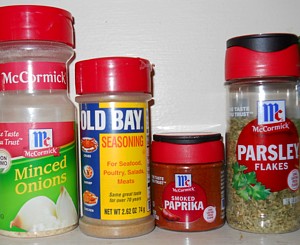


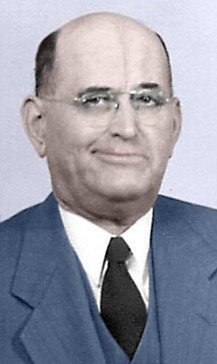







 month
to check for mail. At times, unclaimed letters
accumulated. When they did, the local Postmaster placed an ad
in the local newspaper to notify individuals that mail had arrived;
typically, they had 30 days to come in and pay the postage.
month
to check for mail. At times, unclaimed letters
accumulated. When they did, the local Postmaster placed an ad
in the local newspaper to notify individuals that mail had arrived;
typically, they had 30 days to come in and pay the postage.